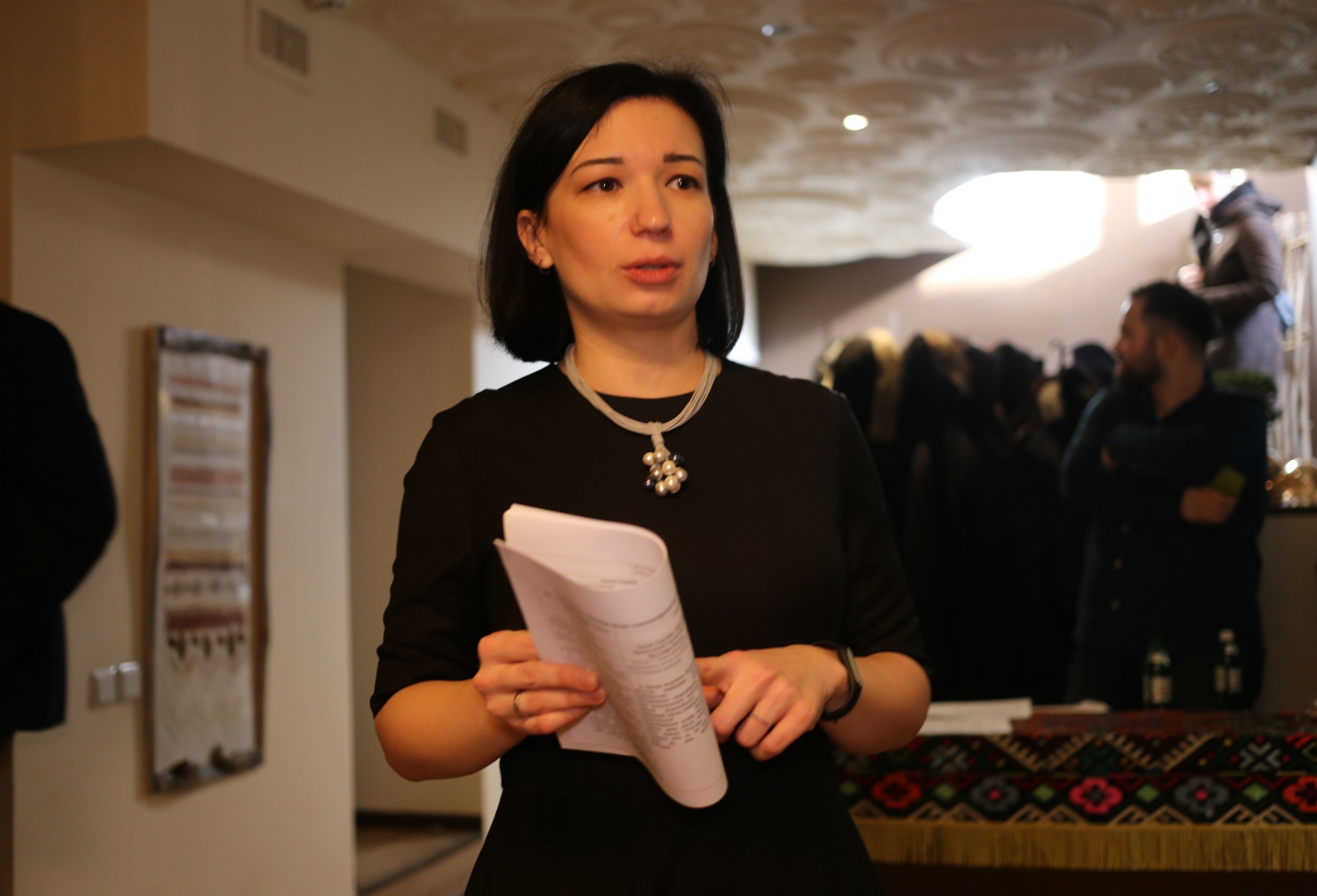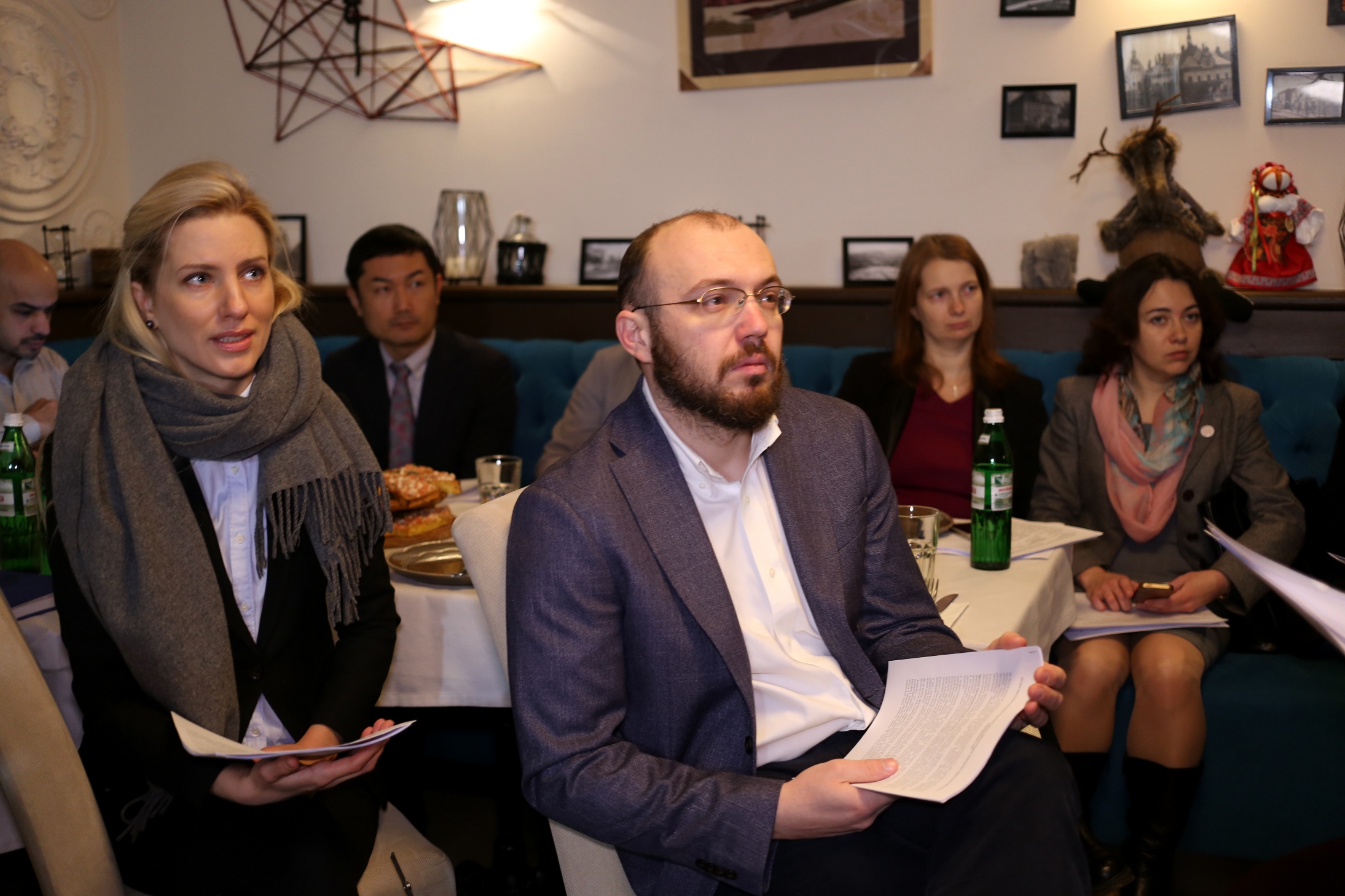Each population group, which is changing the place of residence, like internally displaced persons, labor migrants, or individuals who have left their registration places, must have an opportunity to change the voting location. Therefore, NGO representatives and MPs are developing a legislative initiative called to secure realization of voting right by each citizen regardless of the residence. This issue was discussed on Thursday, 16 February, on a working meeting of NGO representatives, the CEC and the Parliament.
According to Electoral and Parliamentary Programs Coordinator of Civil Network OPORA Olha Aivazovska, representatives of these three groups have prepared three draft laws concerning regulation of franchise for internally displaced persons. These draft laws are initiated by Civil Network OPORA and Hrupa Vplyvu Civil Holding; a group of an MP Mustafa Naiiem, and Svidoma Ukraina NGO.
The draft law, prepared by Civil Network OPORA and Hrupa Vplyvu Civil Holding, amends the Law of Ukraine on the State Register of Voters, allowing to change the voting address based on a reasoned appeal of a voter.
It is suggested to allow changing the voting address based on the same grounds which were established by a special Explanation issued by the CEC in 2009:
- employment within an administrative-territorial unit, to which a new election address belongs;
- on-campus studying in a HEI;
- a voter owns housing within an administrative-territorial unit of a new voting address;
- permanent residence within an administrative-territorial unit of a new voting address (including the status of an internally displaced person);
- a voter is taking care of a person who is incapable of moving independently (the voting address can be changed to the registration address of such person);
- a voter can change his/her voting address to the registration address of his/her spouse.
According to the Civil Network OPORA's Analyst Oleksandr Kliuzhev, the draft law suggests to give the CEC authority to decide which documents can be accepted as a proof of voter's residence at a new voting address, instead of establishing the list of grounds for changing the voting address.
MP Serhii Taruta welcomed the initiative to join three draft laws into one and elaborate it in a working group before registration. However, he doubts that it is going to be supported by current Parliament. “I don't see a political will to adopt anything in the Verkhovna Rada. We will not succeed without a public pressure,” – the MP said.
Mustafa Naiiem, who has initiated one of the draft laws, emphasized that most of the internally displaced persons don't have lease agreements. The situation with employment is the same. He has also mentioned that 1.7 million of IDPs may have a significant impact on the election outcomes and, therefore, manipulations may occur, also related to the residence of IDPs.
Executive Director of Hrupa Vplyvu Civil Holding Tetiana Durnieva has mentioned that not all the IDPs want to change their election address. Thus, it's reasonable to change it based on personal applications. “There are people who don't see themselves as a part of their current community. They believe they live there temporarily and don't want to participate in elections. Therefore, if we change their voting addresses automatically, we will violate their rights.” – Ms. Durnieva said.
MP Svitlana Zalishchuk said she hopes that the working group on realization of IDPs' voting rights will find a consensus despite political controversies in the Parliament.
Head of the State Voter Register administration body Oleksandr Stelmakh has emphasized that temporary change of voting location should be available not only to the internally displaced persons, but also to migrant workers and voters who don't have a registration address. According to him, the number of such voters reaches around 803 thousand and they are not included in the voter list.
MP Oleksandr Chernenko has mentioned that it's difficult to prove that a voter belongs to the certain community and, besides that, there may be falsifications influencing the election results.
Project Coordinator of the Human Rights Information Center Liudmyla Yankina said that more than one third of the population live outside their registration address, and migrant workers come back to the districts where they don't live anymore to vote. “Being an IDP is not a ground to lose the right to vote.” – Ms. Yankina stated.
The experts agreed to conduct some meetings to discuss fundamental standpoints of the draft law concerning the rights of internally displaced persons and other mobile population groups.
For more information, please contact:
- Civil Network OPORA [email protected]
- Hrupa Vplyvu Civil Holding [email protected]





